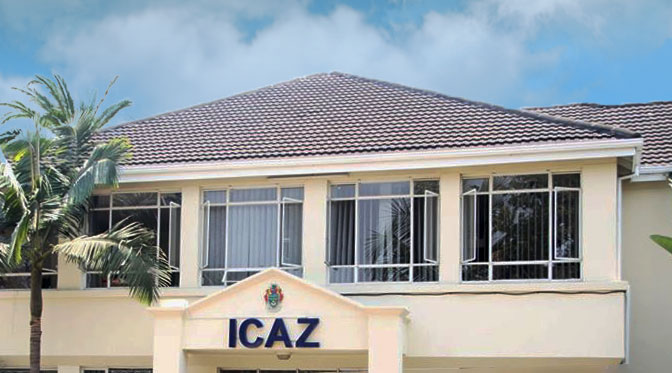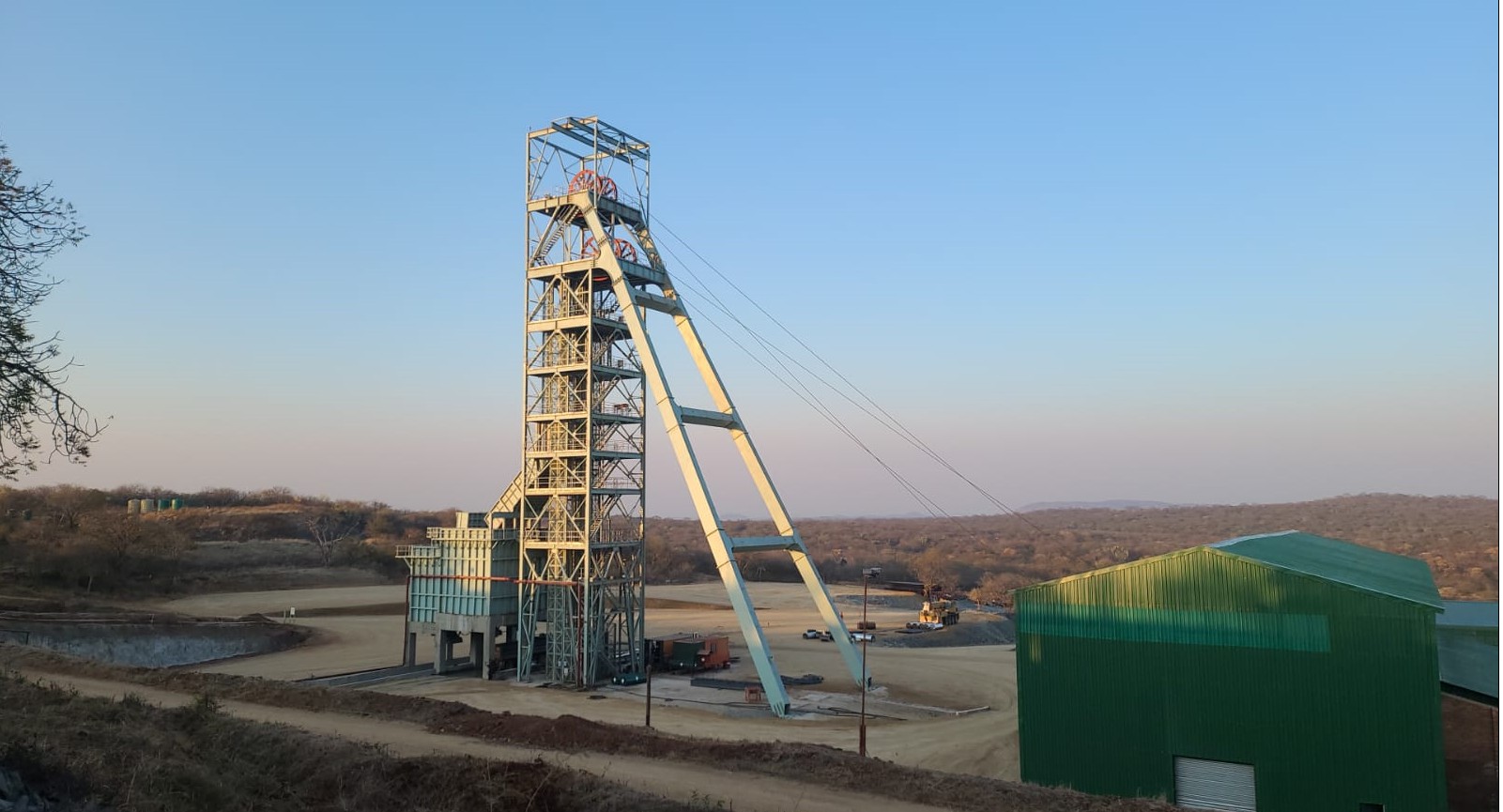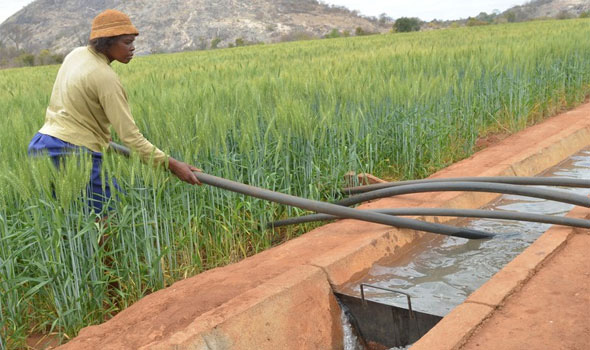Formalizing informal sector key to Zimbabwe’s economic recovery
ANALYSTS say authorities must develop strategies to attain improved economic growth rates, moving away from the current minimal growth levels that have been experienced in recent years.
Economic commentators have highlighted a concerning trend in Zimbabwe’s economic performance where in 2015, the country was ranked 30th globally in terms of economic growth, a position that fell to 39th by 2020.
This decline has been exacerbated by the severe El Niño shocks experienced in 2024, resulting in a substantial downturn in economic activity.
Consequently, the economic growth forecast for the year has been grimly adjusted to a mere 2 percent, pushing Zimbabwe’s ranking to 38th in 2024.
This situation underscores the urgent need for a concerted effort to revitalise the nation’s economy, ensuring that Zimbabwe can catch up with its regional counterparts that have been experiencing more robust growth.
Analysts argue that it is essential to rebalance the local economy by diversifying revenue sources and addressing the structural imbalances that are hindering the necessary economic advancements.
Currently, Zimbabwe’s economy is heavily reliant on the trade and distribution sector, which accounts for approximately 19 percent of the country’s GDP.
This figure is notably higher than that of many other African nations, indicating a worrying dependence on finished imported goods.
Such reliance reflects a consumption pattern that could be detrimental to sustainable economic growth given that local industries wont be benefiting.
While giving an appraisal of the 2025 National Budget at the post –budget breakfast meeting, hosted by Business Weekly in collaboration with the Confederation of Zimbabwe Industries (CZI) and the Ministry of Finance, Economic Development and Investment Promotion on Monday, James Wadi an economic analyst said there is a pressing need to effectively rebalance the economy and rejuvenate key sectors such as agriculture, the automotive and bus industries, and general manufacturing, all of which are currently underperforming.
A strategic focus on these sectors could lead to a more balanced economic structure and increase local production, which, in turn, would contribute positively to the fiscal landscape.
He said addressing these economic challenges will be crucial not only for improving growth rates but also for enhancing the overall resilience and sustainability of Zimbabwe’s economy in the face of external shocks and internal pressures.
“I believe that we have a growth problem as a country, and we need to find out how we can turn the economy. When I look at the growth trend for Zimbabwe, we do not seem to be doing well.
“From a broad perspective, it simply means, we need to focus on how we can turn around our growth so that we can catch up our regional counterparts and compete amongst fastest-growing economies,” said Wadi.
He emphasised that the practice of using land as collateral for loans could significantly contribute to unlocking economic value.
Wadi noted that allowing landowners to leverage their property, could enhance access to financing, particularly for those facing challenges in obtaining traditional loans.
Additionally, it could help alleviate some of the structural issues currently prevalent in the economy, such as limited investment opportunities and lack of credit access for small businesses.
“We believe the recent move to collaterise land is a move in the right direction. We need to ensure that we move in that direction to ensure that maybe land becomes collateral to commercialise agriculture.”
Overall, this strategy could serve as a vital mechanism for stimulating growth and addressing financial disparities within the community.
He also pointed out that there are approximately US$400 million in state-owned reserves currently inaccessible, which could be redirected towards sectors of production that have the potential for significant impact.
This reallocation of funds could stimulate growth in key industries, promoting innovation and job creation while maximizing the overall economic benefit.
“So if US$400 million is locked up in statutory reserves, what does it do? Literally, we may be starving the various industries of making capital facilities because we are quarantining US$400 million of potential capital.
“If this money is targeted at high-impact sectors, we may begin to address some of the growth challenges. So here is just a simple example of the money that is quarantined that can in contrast be put to good use, but it is not doing so now.
Wadi and other key business players also implored the Government to invest more on incentivising informal sector players to transition into formal business operations to enhance economic stability and improve tax revenues.
He highlighted that nearly 86 percent of businesses across Africa operate within the informal sector and Zimbabwe was not spared from this growing business phenomenon.
He emphasised the importance of making the formal sector more appealing to business owners, suggesting that this can be achieved through various means.
As part of the incentives Wadi said Government could develop pension schemes specifically tailored for those in the informal sector or implement social insurance programmes and other conditional incentives that become available upon registering as formal enterprises can encourage informal businesses to make the change.
He said the authorities should come up with strategic approaches that focus on protecting the rights of informal sector entrepreneurs and this could involve ensuring the protection of their assets, thereby fostering an environment where business owners feel secure and valued.
Wadi said adoption of this perspective would shift Government’s goal from merely extracting tax revenues to creating a business-friendly landscape that emphasises the benefits of transitioning from informal to formal operations.
He expressed concern that economies characterised by high levels of informality are often perceived as high-risk environments by potential foreign investors.
This perception often deters investment, impeding economic growth and development noting that it is imperative for Zimbabwe to address the escalating trend of informalisation swiftly.
He argued that, without prompt and effective action, the country risks solidifying its status as a high-risk investment destination.
“We have talked about how do we reverse informalisation of the economy, and when I did my research I realised that informalisation, is not only a Zimbabwean problem but an African problem. We should make the formal sector attractive for businesses to move from informal to formal even for issues like pension schemes for informal sector, social insurance schemes and other conditional incentives that are beneficial to the informal sector upon registering.
“From that perspective we would have moved away from an approach where we can only benefit from tax perspective but we would have put an incentive for business to transform.
“From an investor perspective, often times economies with high informality is viewed as high risk environment, so if we are to remain highly informalised , investors will see our environment as high risk,” said Wadi.
Small to Medium Enterprises Association of Zimbabwe (SMEAZ) Chief Executive Officer Farai Mutambanengwe said the Government’s influence in the economy is diminishing.
He called for innovative approaches to reclaim and strengthen the Government’s role in the business sector, indicating that it is possible to create a more conducive environment for entrepreneurship, which is essential for sustainable economic growth in Zimbabwe.
“I think it is important to note that there is deepening informalisation. In other words Government sphere of influence in the economy is fast shrinking and creative ways should be found to redeem Government’s control over business.
“You must be encouraged to become legal but, in our economy, the situation forces you to informalise, over-regulation is continuing to perpetuate the problem.
“In a normal economy, regulations should encourage you to formalise because that is the way you become successful. For me, these are the main challenges that any budget must address,” he said.
-ebsinesweekl










